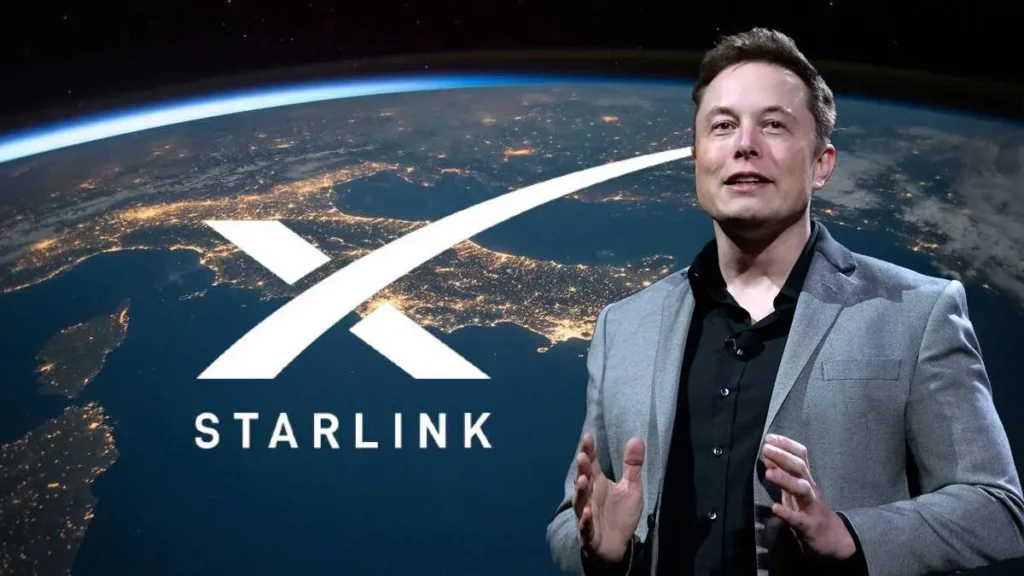- Jumia will serve as the distributor of satellite terminals and connectivity kits for Starlink Ventures in Africa.
- Jumia’s extensive reach throughout Africa enables it to pioneer in offering these kits.
- E-commerce giant Jumia will initiate the sale of satellite terminals and related equipment in Nigeria.
In spite of the adverse effects of COVID-19 on Africa, the pandemic years became a significant turning point in the continent’s economic landscape. Over the course of just two years, Africa demonstrated its capabilities through its substantial growth in the realm of e-commerce. This surge in e-commerce activity underscores the immense potential that Africa holds, especially if it can bolster its Internet access infrastructure.
Notably, this potential has captured the attention of billionaire entrepreneur Elon Musk. He has taken proactive measures to accelerate Africa’s journey toward asserting itself in the online landscape. In recent developments, Elon Musk’s satellite internet company, Starlink Ventures, has entered into a strategic partnership with Jumia, Africa’s foremost e-commerce platform.
Under this collaboration, Jumia will serve as the inaugural distributor of satellite terminals and connectivity kits for Starlink Ventures in Africa. Their alliance not only highlights Africa’s tech industry promise but also underscores the pressing need for substantial improvements in the continent’s internet infrastructure..
Starlink Ventures picks Jumia
Currently, Africa is experiencing one of its most transformative evolutions since the continent’s independence. A digital era has opened many opportunities for the continent. In return, its citizens have showcased their innovation and willingness to achieve greatness.
During this digital era, Africa has produced several unicorn startups that are barely a decade old, highlighting its lucrative market. Its rapid growth was only possible through the availability of the Internet and various infrastructures.
Despite its consistent growth rate, several regions lack the necessary facilities to access this life-changing technology. Billionaire Elon Musk is stepping in to invest in the continent’s digital growth through his satellite internet firm, Starlink Ventures.
Jumia, which has Pernod Ricard SA and Goldman Sachs Group Inc. as investors, will provide the means to penetrate Africa’s growing internet market. E-commerce giant Jumia will initiate the sale of satellite terminals and related equipment to vital African regions. The sales will commence in Nigeria in the upcoming weeks.
Read also: Elon Musk kicks off a storm even before launching Starlink in Nigeria
Nigeria’s thriving digital environment
According to Hisham El Gabry, Jumia’s Chief Commercial Officer, Nigeria is the likely starting point due to its thriving digital environments. In addition, he said, “We have seen Starlink do these types of deals in Southeast Asia and South America, and now Africa will also have the opportunity to access the fast-speed internet services. The plan is to start selling through our sites and agents in Nigeria this month, and then Kenya.”
Many have wondered why internet service providers like MTN Group Ltd, Safaricom, and Vodacom Group Ltd were not the obvious choice, but each shares a common challenge. For more than two decades, these broadband providers have been struggling to supply internet services to remote regions.
Starlink Ventures intends to start in remote areas where internet penetration is at its lowest. Thus, Jumia’s access to remote areas will provide the necessary means to deliver their portable terminals. Telos in Africa’s broadband services landscape use traditional internet distribution methods such as fiber optic or undersea cables.
Africa’s internet potential
As of 2021, Africa’s internet penetration rose to 43 per cent since 2014. According to Statista, as of January 2023, Morocco became the leading country with 88.1 per cent of its total population accessing the internet and its infrastructure. The Seychelles ranked second with 82 per cent followed by Egypt with 81 per cent. These figures highlight how rapid the need for connectivity is.
Currently, the fourth industrial revolution represents a drastic shift towards digital platforms, with most organizations now having a digital presence. Since the COVID-19 pandemic, it became clear that to stay in business, many enterprises had little choice but to offer online delivery and purchase. It is during this period that Jumia officially gained its unicorn status, inspiring other innovators to create their e-commerce platforms.
Read also: Jumia Food rolls out first in Africa subscription package
Use of internet in agriculture
In addition, blockchain technology and AI have significantly shaped the minds of African entrepreneurs. Today, many have directed their attention to online shopping platforms, fintech startups, or web3 startups. In addition, many of Africa’s existing industries have utilized this technology to provide broader opportunities and better infrastructure.
For instance, recently Africa’s agriculture industry has embraced technology. Small-scale farmers rely on the Internet to predict whether partners share best farming practices with peers. These feats are only possible through the internet, thus highlighting its significance.
Billionaire Elon Musk is not the only one who intends to hasten Africa’s digital transformation. Google, Microsoft, Binance, and other tech giants have made active steps to promote the continent’s internet infrastructure in the coming years.
According to Starlink Venture, Jumia will distribute its products across 11 African countries, emphasizing Africa’s big four; Egypt, South Africa, Kenya, and Nigeria.
